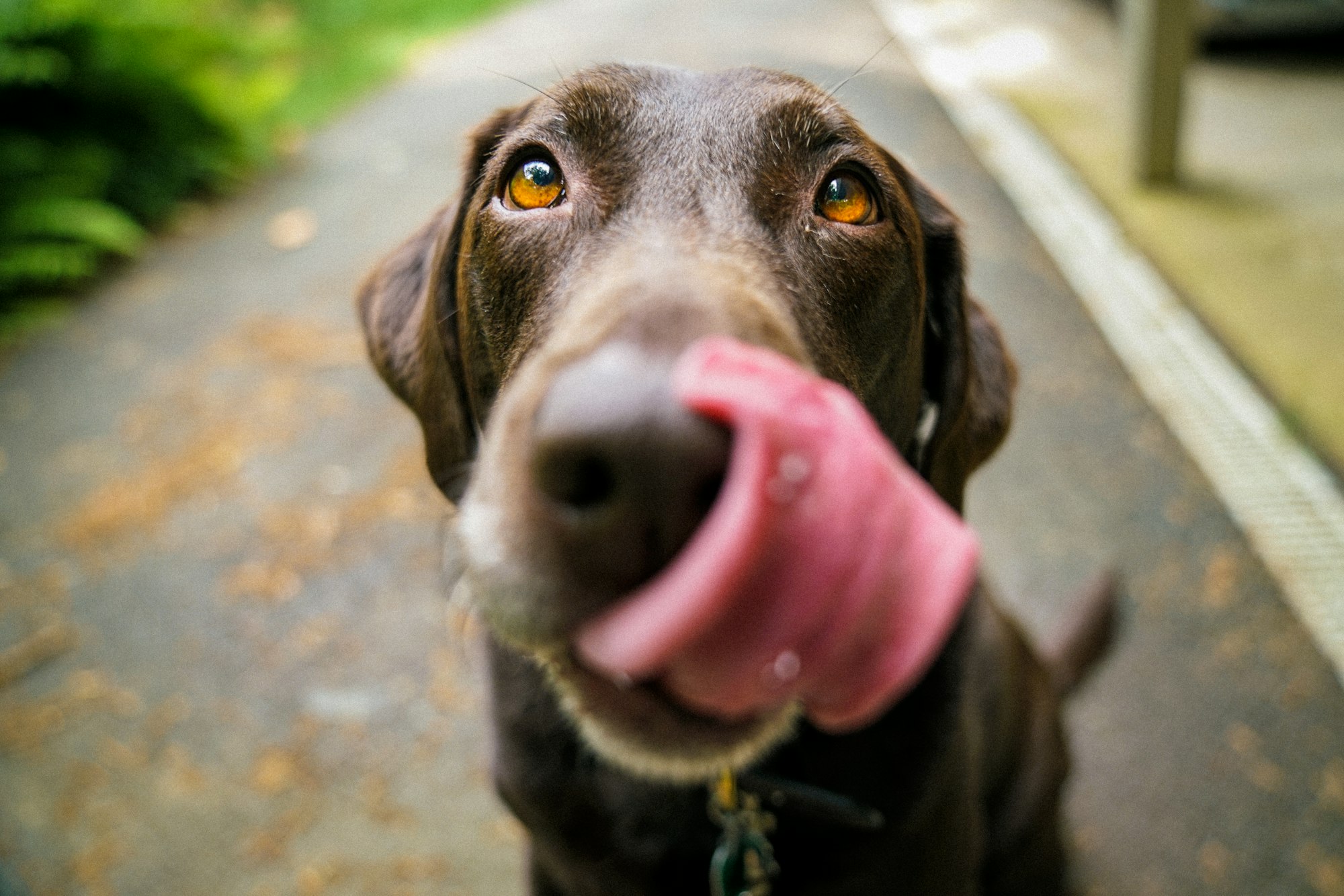Dogs sometimes exhibit strange behaviors. The common issue is affected dogs constantly scratching their ears and licking their paws. While it’s easy to dismiss these actions as harmless quirks, however, they can signify serious problems.
This article will explore some of the potential causes of excessive ear scratching and paw licking in dogs, as well as some tips on how to stop a dog from scratching its
Solving Excessive Scratching & Licking in Dogs
If you're seeking peace of mind while keeping your dog safe and healthy, the Fi Dog Collar is the perfect solution. This advanced GPS tracking collar not only monitors your dog's location, activity levels, and sleep patterns but also features a unique geofencing capability to alert you immediately if your furry friend escapes.
With the Fi Dog Collar, you'll have the fastest way to locate your dog post-escape, ensuring their safety at all times. For more details and to see the Fi Dog Collar in action, visit the Fi Dog app. Don't wait—ensure your dog's safety and your peace of mind today with the Fi Dog Collar!
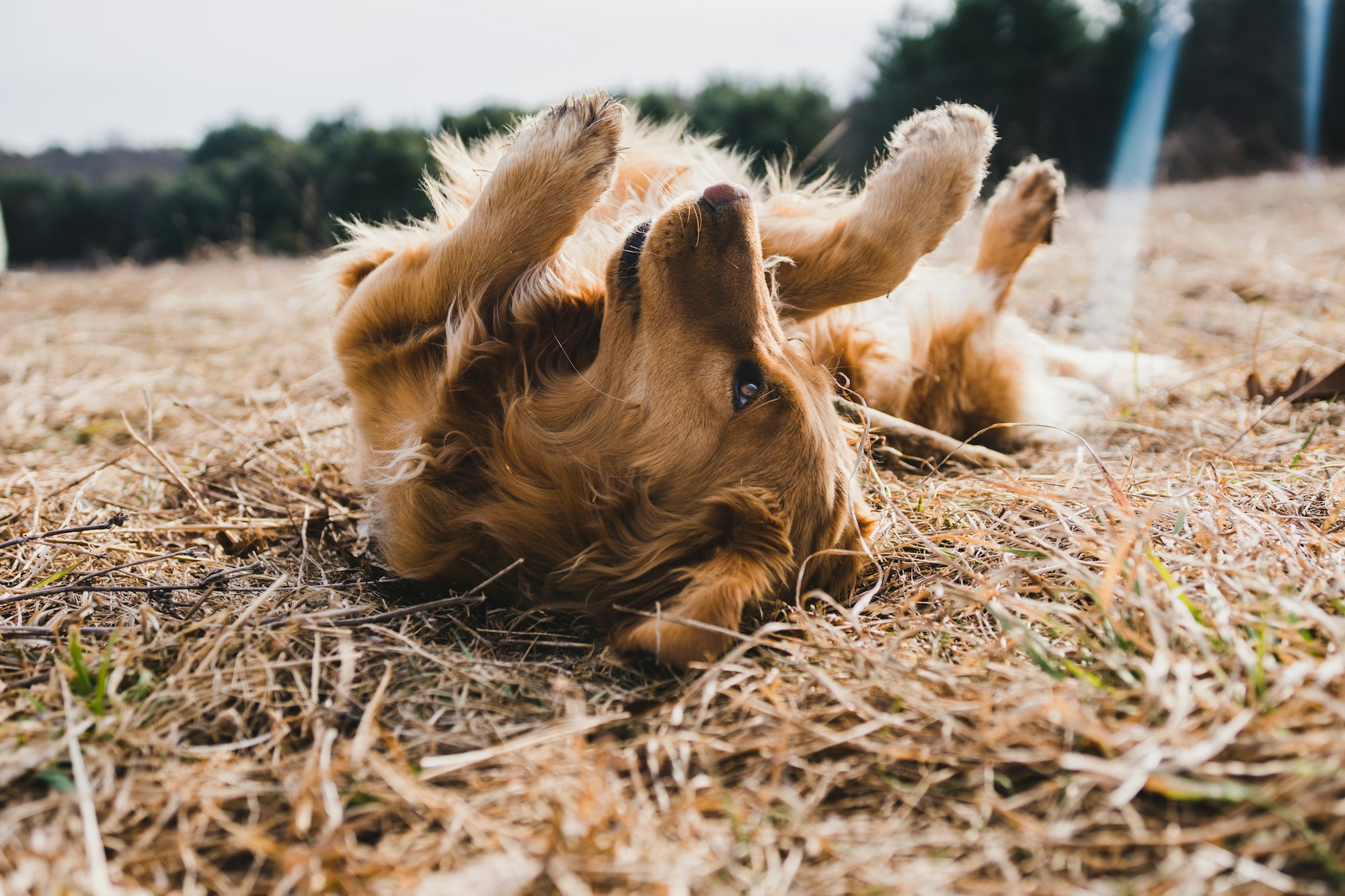
Why Is My Dog Scratching Their Ears, Licking its Paws, or Shaking its Head?
Your dog keeps scratching ears and licking paws for many reasons. Issues such as ear mites can cause significant discomfort in a dog's ear. And these might be serious illnesses, so take action and salvage your pet. The behavior can result from the following:
It could be an infection in the mouth or ear canal. Ear discharge is another symptom that may indicate an ear infection or ear mites
1. Chronic Pain
Licking paws or shaking head might be signs of chronic pain resulting from inflammation or injury. The most common cause of chronic pain in dogs is osteoarthritis. It's a condition where the cartilage between the joints becomes worn down and causes inflammation and pain.
2. Neoplasia
Neoplasia refers to the development of new growths within tissue cells. This could be benign or malignant (cancerous).
Some examples of neoplasms are mast cell tumors, lymphoma, and vestibular schwannoma. Suppose your pet is developing signs of neoplasia; you should take them to see your veterinarian as soon as possible. Therefore, your vet can perform an examination to determine if there are any abnormal lumps present.
3. Ear Infections
Pets can get infections from bacteria, viruses, parasites, or fungi. Symptoms of infection are:
- Loss of appetite
- Weight loss
- Vomiting
- Diarrhea
- Fever
- Lethargy
So, if the pet is licking its paws excessively or shaking its head, it could be an infection in the mouth or ears. Ear infections are common in dogs and can cause symptoms such as itching, scratching,
4. Metabolic and Endocrine Illness
A chemical imbalance in the body may be causing your pets to lick their paws excessively. An endocrinologist will perform blood tests on your pet to check for thyroid disorders and diabetes mellitus.
5. Allergic Skin Disease
Allergies can also result in abnormal behavior in your pet. The most common allergen is fleas; however, other allergies are pollen and dust mites. In case your pet has an allergy, and you think it may be fleas, consider using a flea treatment.
Scratching due to allergies can
What Is Excessive Licking?
Licking is a natural and instinctive behavior that serves to clean the dog. Your pet may lick his paws, face, or lips when wet or dirty. Or they may lick your other pet.
For instance, suppose your dog gets wet while outside and comes inside; he might lick his feet to dry them off. Or if your dog is feeling emotional, it may lick your face.
However, excessive dog allergies scratching ears, and licking paws may indicate an underlying medical issue. The causes of this behavior are mentioned above, from allergies to infection. It’s vital to understand what is causing the excessive licking to enable proper treatment. Yeast infections are another common cause of excessive licking in dogs.
On the other hand, it’s possible your pet has developed these stress behaviors due to changes in his environment or routine. Suppose this is the case, then ensure that your pets have enough stimulation in their day and try to avoid stress
Causes of Excessive Licking?
This behavior might result from different causes. The most common are:
- Anxiety and stress
- Gastrointestinal issues (diarrhea, vomiting)
- Allergies to food or environmental allergens
- Dry skin
Suppose you notice your dog starts licking when he's left alone at home; it is time for him to get trained.
Dogs who have been abused or neglected may develop behavioral problems like excessive self-grooming and other forms of destructive behavior like chewing on furniture.
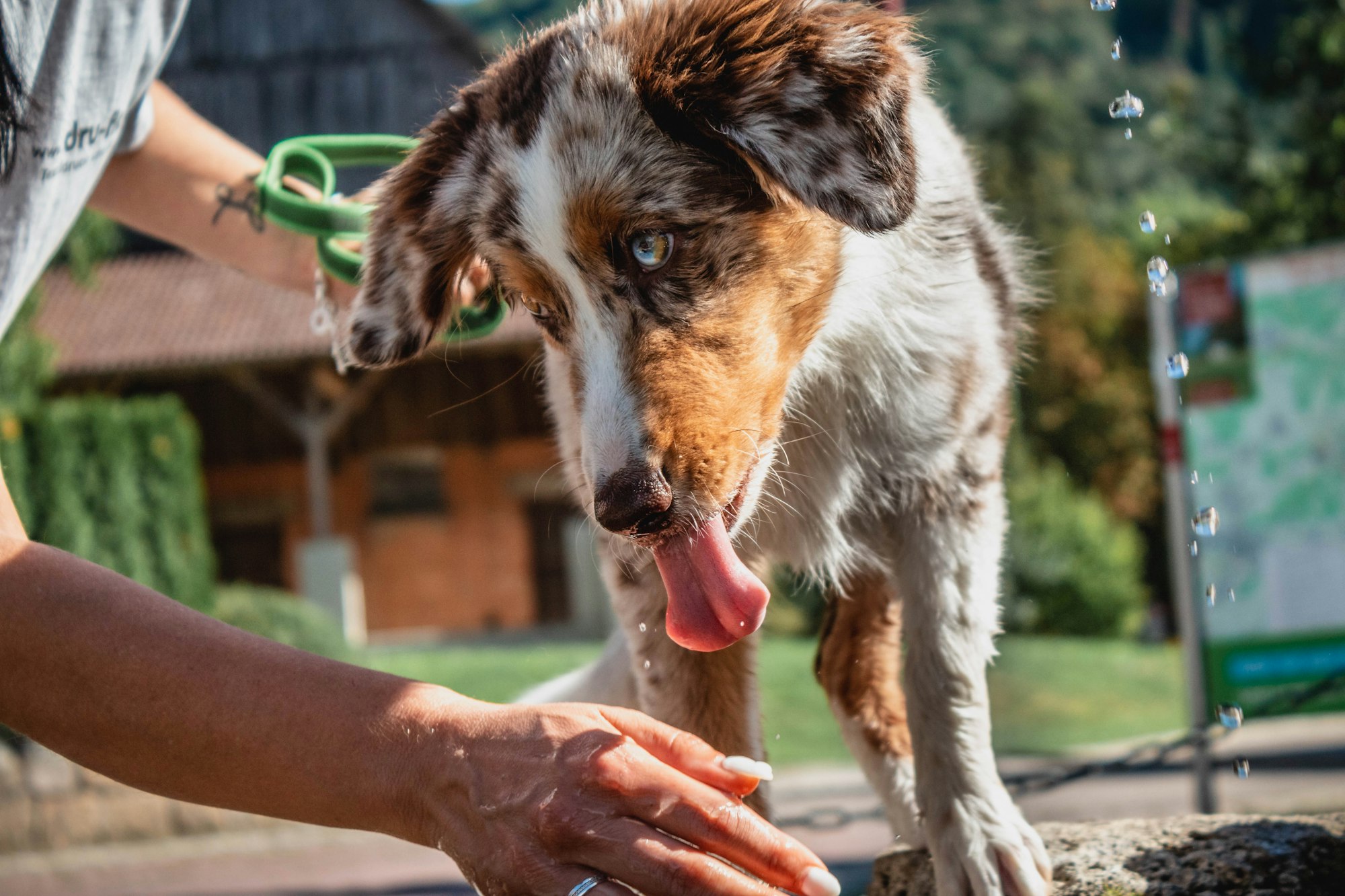
Excessive licking in dogs can be related to the following conditions:
- Medical issues like painful bones, joints, and muscles, for instance, osteoarthritis, soft tissue injuries, fractures, and degenerative joint disease.
- Skin conditions such as external parasites, food, or environmental allergies.
- Behavioral causes of excessive licking include anxiety, boredom, or pain.
- Other reasons may be seeking attention, seeking comfort, or self-soothing.
How to Stop a Dog from Scratching Ears and Paws
Treating this behavior can be done in many as has been shown.
Treating an ear infection promptly can
Traditional Treatments
- Antihistamines. These are taken as pills or capsules to help reduce the inflammation and itching caused by allergies. Antihistamines can help reduce the inflammation and itching caused by inflamed ears.
- Antibiotics licking. Suppose the dog has an infection or parasites, which might cause excessive licking. Therefore, it’s vital to treat both the skin conditions and whatever is causing the infection.
- Topical sprays and creams. This helps soothe irritated skin. However, keep in mind that if your dog is still itching, it may not be getting enough relief from topical treatments alone.
- Medicated shampoos. These are great for treating dry skin conditions. However, they won’t do much for itchy skin other than make it smell nice!
Non-Medicinal Treatments
Besides traditional medication, there are also non-medicinal treatments for excessive licking and itching behavior. These approaches have fewer side effects and can be used along with prescription drugs. E-Collars can prevent dogs from scratching and further irritating areas affected by ear mites.
- E-Collars. Also known as Elizabethan collars, these devices prevent pets from licking or biting the affected area by placing a plastic cone around its neck. These measures might seem to cause your dog discomfort, but they are essential in preventing further irritation and healing the skin.
- Cooling mats. You place the mats in your freezer, then use them to soothe a swollen area or reduce inflammation. They help relieve itching and pain by constricting blood vessels beneath the skin’s surface.
- Compresses. Warm or cold compresses are used to soothe the affected area and reduce itching and inflammation.
- Behavioral modification. Behavioral modification techniques like environmental enrichment, exercise, and training can help address these underlying causes.
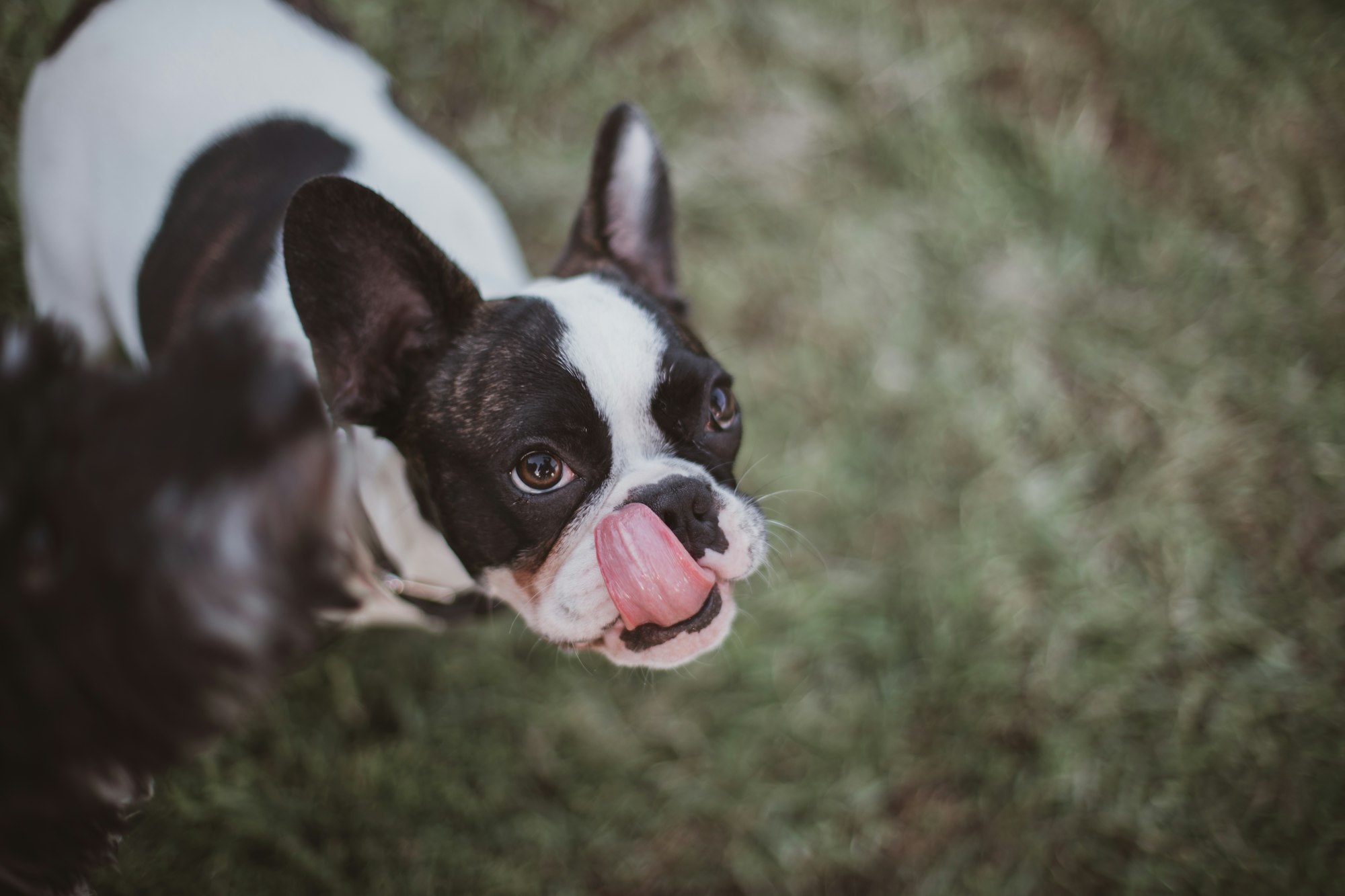
Natural Supplement Treatments
Natural supplement treatments use natural ingredients and are safer and gentler than traditional medications.
- Probiotics. These are beneficial bacteria that help improve gut health and boost the immune system. They can be found in supplements or in foods like yogurt and kefir.
- Vitamin E. It is an antioxidant that helps reduce inflammation and improve skin health. It can be found in supplements or in foods like almonds, spinach, and Chamom.
- CBD oil. This is a natural supplement that can help reduce inflammation and improve skin health. It can be found in the form of oils and capsules, among others.
Natural supplements can also help prevent ear infections by boosting the immune system.
It is vital to consult with a veterinarian before starting any natural supplement treatment. The dosage and duration of treatment vary depending on the underlying cause of the itching and licking.
Diet Changes
Diet changes can also address excessive licking and itching in pets. The food that a pet eats has a significant impact on their overall health, for instance, their skin and coat health. Consider these common diet changes:
- Limited ingredient diets. These diets contain a limited number of ingredients and are often used to identify and avoid food allergies causing itching and licking.
- Hypoallergenic diets. These diets are formulated for pets with food allergies. They contain novel protein sources that the pet has not been exposed to before.
- Grain-free diets. These diets eliminate grains, which are a common allergen for pets.
- Omega-3 fatty acid supplements. Omega-3 fatty acids can help improve skin and coat health. Adding them to a pet's diet can be beneficial for reducing itching and licking.
- Probiotic supplements. These can help improve gut health and boost the immune system. This, in turn, improves skin health.
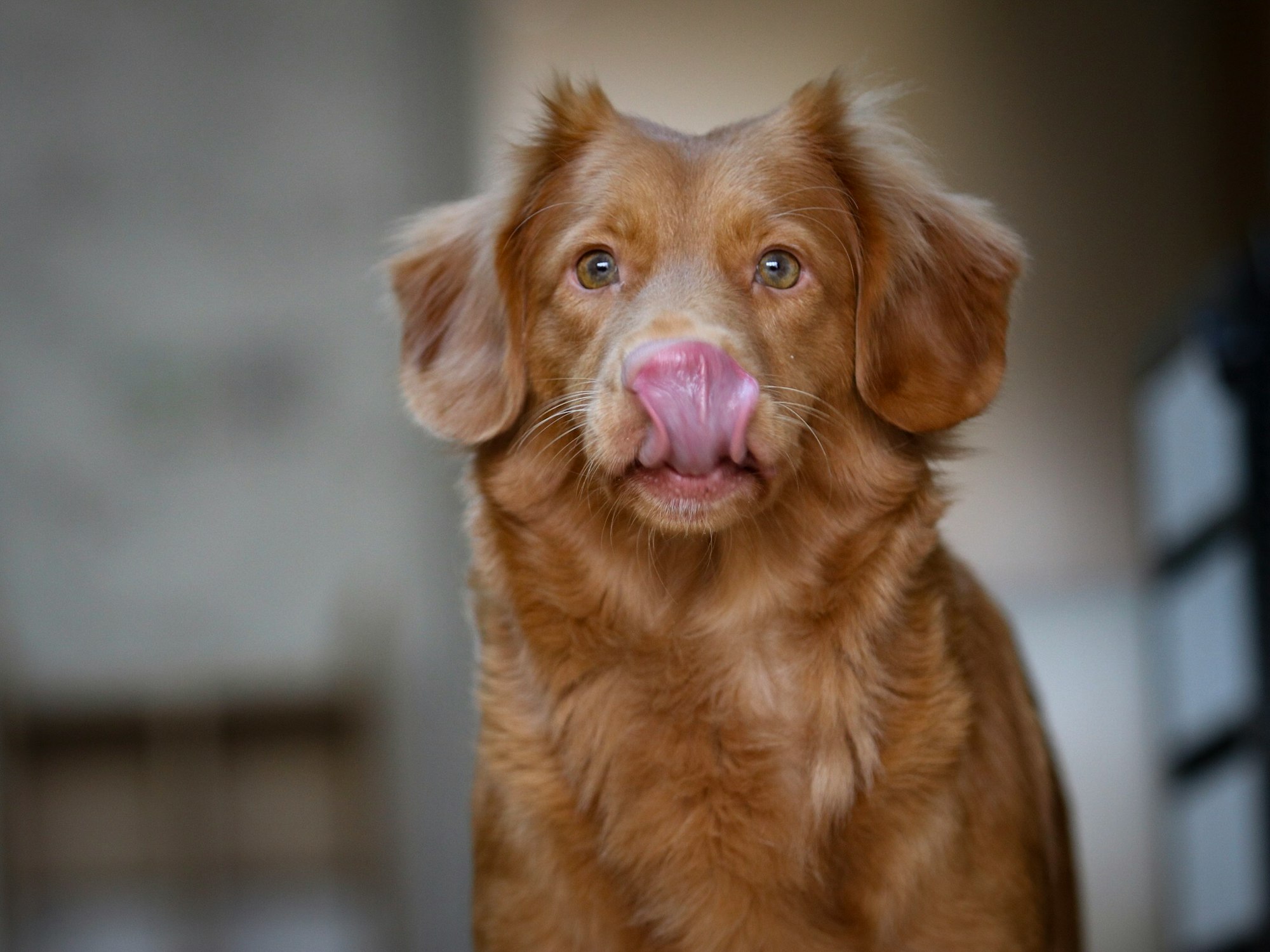
Work with Your Veterinarian
Suppose you suspect your dog has a medical problem and is licking excessively, contact your veterinarian to find out what’s causing the behavior. Your vet will examine your dog's ears to check for signs of infection or mites. Your vet will examine your dog and conduct blood tests to understand the problem. In case, any health issue is found, it is time to treat the symptoms and help the canine stop licking.
Veterinary Remedies for Your Dog's Itchy Skin and Paws
Vets use several methods to help your dog back to its normal condition. Here are a few.
- Antihistamines. These medications aid in treating allergies causing excessive licking. Your veterinarian will recommend the appropriate dosage and type of antihistamine to be used.
- Steroids. In severe cases, your vet may prescribe steroids to reduce inflammation and itching. Steroids can help reduce inflammation in the ear canals. However, long-term use of steroids can have side effects. Therefore it’s vital to use them only as directed.
- Antibiotics. Suppose the behavior is due to a bacterial infection; your vet may prescribe antibiotics to clear it up.
- Immunotherapy. If allergies are the root causing your dog’s itchy paws, your vet may recommend immunotherapy. It involves exposing your dog to amounts of the allergen over time to up their immunity.
Final Thoughts
Now that you are well-equipped with dog scratching ears and biting paws, you can take care of your dog. These tips and tricks will help to identify problems in advance to avoid further damage to keep your pet healthy and happy.
For more helpful articles about pet-parenting tips, check out the Off Leash blog at TryFi.com.
Want to know more about TryFi.com? The Fi Dog Collar is a GPS tracking collar that not only keeps track of your dog's location, activity levels, and sleep patterns, but it also alerts you if your dog escapes your backyard. This is the fastest way to find your dog after an escape. Try the Fi Dog Collar today!
